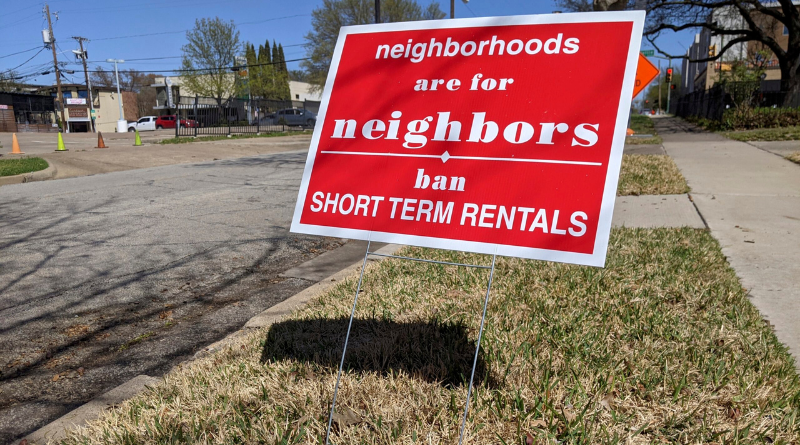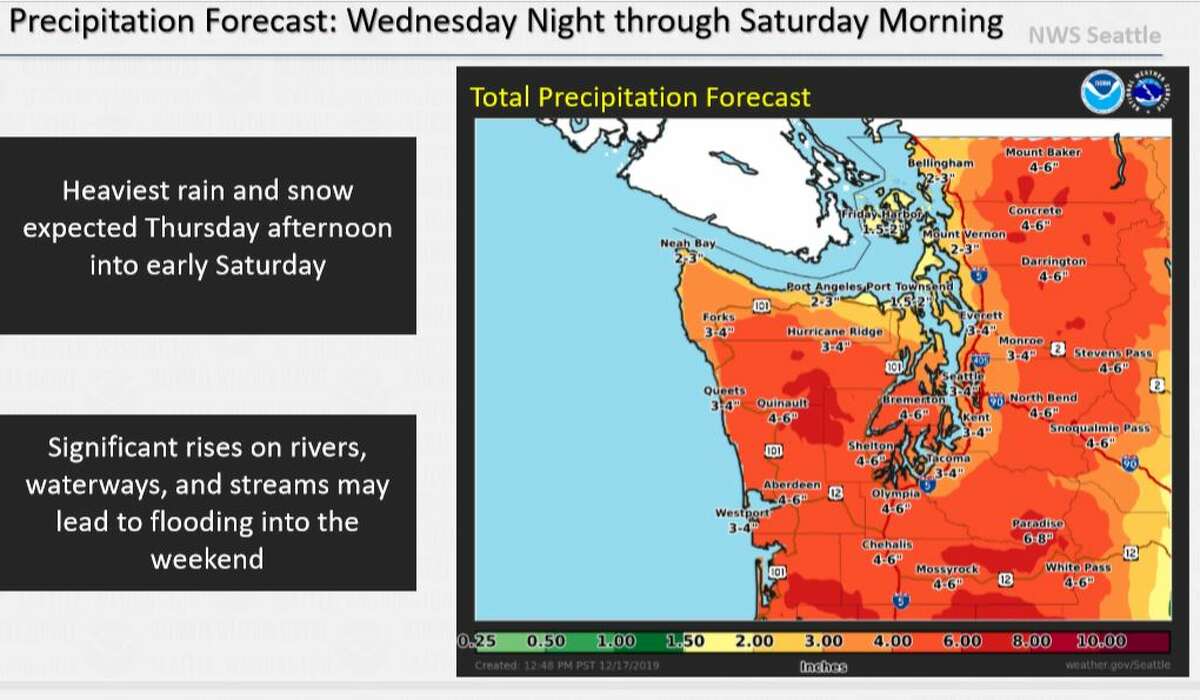Short-Term Rental Ban Facing Potential Repeal: What Landlords Need To Know

Table of Contents
Understanding the Legal Landscape of Short-Term Rental Repeals
The repeal of a short-term rental ban drastically alters the legal framework surrounding property use. Landlords need to understand these changes to ensure compliance and avoid legal repercussions.
Changes in Zoning Regulations
Repealing a short-term rental ban often involves changes to zoning regulations. These changes might include:
- Increased permitted number of short-term rentals: Municipalities might lift restrictions on the total number of short-term rentals allowed within specific zones.
- New permitting requirements: Landlords may be required to obtain specific permits or licenses to operate short-term rentals, involving inspections and compliance checks.
- Limitations on location: Restrictions might still apply to certain areas, such as historical districts or residential zones, limiting where short-term rentals are permitted.
- Noise and parking regulations: Stricter rules on noise levels and parking availability might be introduced to mitigate the impact of short-term rentals on surrounding residents.
It's crucial to check with your local government's planning and zoning department for updated regulations. Some areas may also include grandfathering clauses, allowing existing short-term rentals to continue operating under previous regulations, at least for a transitional period.
Liability and Insurance Considerations
The shift to short-term rentals significantly increases liability risks for landlords. The constant turnover of guests introduces a higher probability of property damage, accidents, or guest disputes.
- Increased risk of property damage: Short-term renters may not have the same level of care and respect for the property as long-term tenants.
- Need for specific insurance policies: Standard landlord insurance policies might not adequately cover the unique risks associated with short-term rentals. Landlords need to explore specialized policies designed for this purpose.
- Potential for higher premiums: Insurance premiums for short-term rentals are likely to be higher than for long-term rentals due to the increased risk profile.
Consulting with an insurance professional to secure adequate coverage is vital before transitioning to short-term rentals.
Tenant Rights and Responsibilities
The repeal of a short-term rental ban can create complexities, especially if a property already has long-term tenants.
- Potential conflicts between short-term and long-term tenants: Managing both short-term and long-term tenants requires careful planning to avoid conflicts and ensure the comfort of all residents.
- Lease agreement considerations: Lease agreements with long-term tenants need to be reviewed to ensure they address the possibility of short-term rental operations on the property.
- Landlord obligations: Landlords have obligations to both types of tenants and must ensure compliance with all relevant laws and regulations.
Financial Implications of the Short-Term Rental Market Shift
The potential repeal of a short-term rental ban significantly impacts the financial aspects of property ownership.
Potential for Increased Revenue
Short-term rentals often offer higher revenue potential compared to long-term rentals.
- Higher rental rates per night: Nightly rates for short-term rentals are typically higher than monthly rent for long-term tenants.
- Potential for year-round occupancy: Short-term rentals can generate income throughout the year, unlike long-term rentals that might have periods of vacancy.
- Increased profitability: Higher occupancy rates and nightly rates can lead to significant increases in overall profitability.
However, factors like vacancy rates and seasonal demand should be considered to accurately assess the potential financial gains.
Managing Costs and Expenses
While short-term rentals can be more profitable, they also involve higher management costs.
- Cleaning fees: Regular cleaning between guests is a significant expense.
- Maintenance: Higher turnover increases the likelihood of minor repairs and maintenance needs.
- Utilities: Utilities costs can fluctuate more with short-term rentals due to varying occupancy and guest usage.
- Marketing expenses: Attracting guests requires ongoing marketing and advertising on platforms like Airbnb and VRBO.
Careful budgeting and cost analysis are crucial to ensure profitability.
Tax Implications and Reporting
Operating short-term rentals involves specific tax obligations.
- Accurate record-keeping: Meticulous record-keeping is essential for accurate tax reporting.
- Tax deductions: Landlords can claim deductions for various expenses related to their short-term rentals.
- Compliance with tax regulations: Understanding and adhering to federal, state, and local tax regulations is crucial to avoid penalties.
Operational Strategies for Successful Short-Term Rentals After a Ban Repeal
Successfully operating short-term rentals requires a strategic approach to property management and guest interaction.
Property Preparation and Management
Preparing a property for short-term rentals requires attention to detail.
- Renovations and upgrades: Enhancements to attract guests, including updated furnishings and amenities.
- Furnishing and décor: Creating a comfortable and inviting atmosphere for guests is vital.
- Cleaning services: Reliable cleaning services are essential to maintain high standards of hygiene between rentals.
- Property management software: Utilizing property management software streamlines operations and improves efficiency.
Marketing and Guest Management
Effective marketing and guest management are key to success.
- Online platforms: Listings on Airbnb, VRBO, and other platforms are essential to reach potential guests.
- Pricing strategies: Competitive pricing based on demand and seasonal factors is crucial.
- Guest communication: Clear and timely communication with guests is important for a positive experience.
- Reviews and feedback: Managing reviews and responding to guest feedback are vital for building a strong reputation.
Maintaining Compliance and Avoiding Legal Issues
Staying compliant with regulations is paramount.
- Obtaining necessary permits: Secure all required permits and licenses before operating.
- Adhering to local ordinances: Strictly follow all local ordinances related to short-term rentals.
- Dealing with guest complaints: Establish procedures for addressing guest complaints effectively and promptly.
Conclusion: Navigating the Future of Short-Term Rentals After the Ban Repeal
The potential repeal of short-term rental bans presents a significant opportunity for landlords, but careful planning is essential. Understanding the legal landscape, financial implications, and operational strategies is crucial for success. Stay informed about updates regarding the short-term rental ban repeal in your area and take steps to prepare your properties for the potential changes in the short-term rental market. Don't miss this opportunity to capitalize on the growing short-term rental sector!

Featured Posts
-
 San Diego Padres Pregame Lineup Changes Arraez Absent
May 28, 2025
San Diego Padres Pregame Lineup Changes Arraez Absent
May 28, 2025 -
 Wet Weekend Ahead Seattle Weather Update
May 28, 2025
Wet Weekend Ahead Seattle Weather Update
May 28, 2025 -
 5 Key Steps To Success In The Private Credit Industry
May 28, 2025
5 Key Steps To Success In The Private Credit Industry
May 28, 2025 -
 Mart 2024 Te Abd Tueketici Kredilerindeki Artis Nedenleri Ve Sonuclari
May 28, 2025
Mart 2024 Te Abd Tueketici Kredilerindeki Artis Nedenleri Ve Sonuclari
May 28, 2025 -
 Friday Euro Millions Draw E245m Jackpot Live Updates
May 28, 2025
Friday Euro Millions Draw E245m Jackpot Live Updates
May 28, 2025
